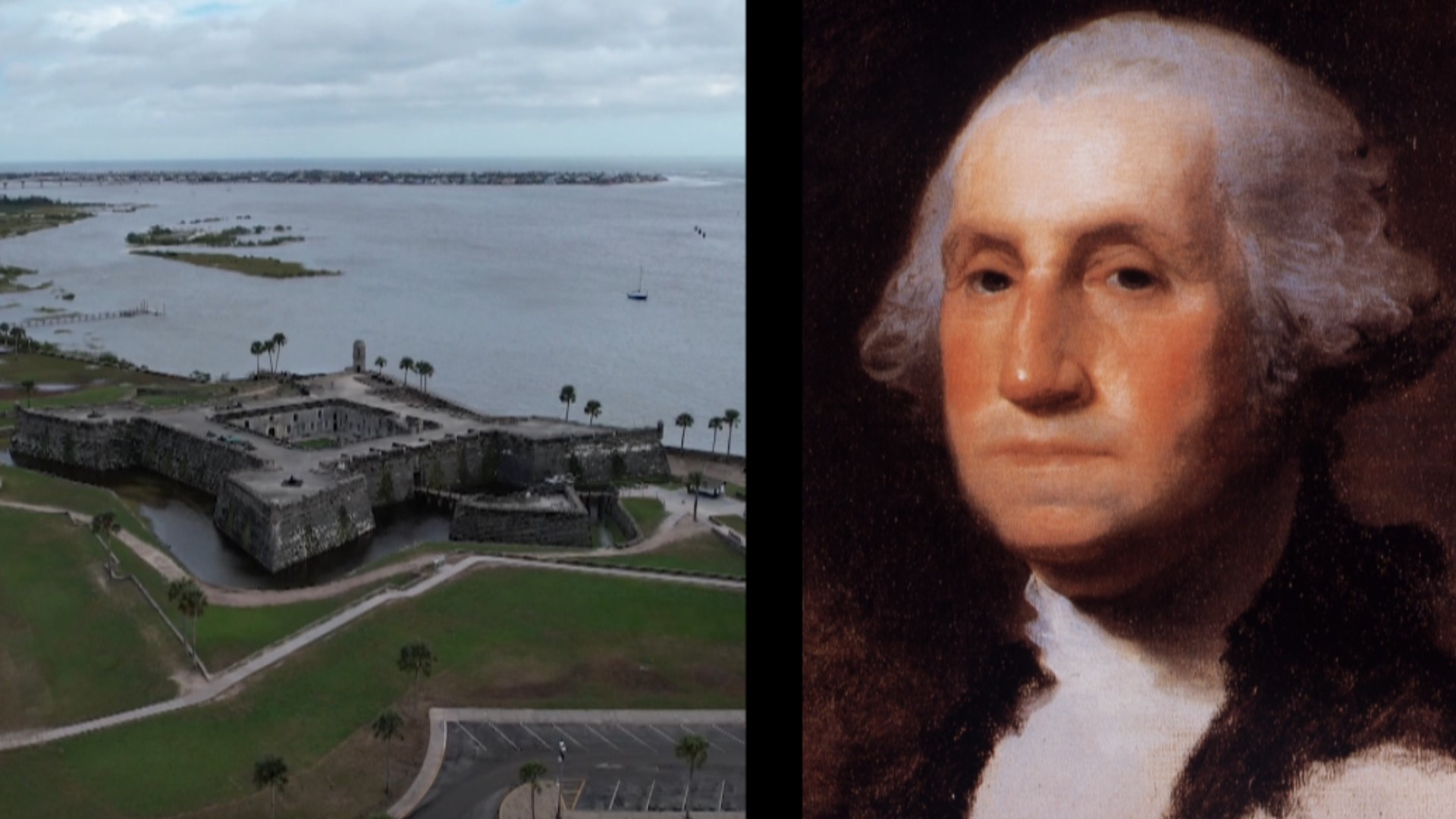ST. AUGUSTINE, Fla. — Presidents Day is a good day to delve into a little-known story about George Washington and how he had his eye on, of all places, St. Augustine.
Historian Roger Smith has uncovered historic gold, as far as he’s concerned.
He has found 81 letters written by George Washington in which he refers to St. Augustine as a military target or a military concern during the Revolutionary War.
While digging through British archives at the University of Florida as well as hundreds of George Washington’s letters in the Library of Congress, Smith learned insights about the Revolutionary War that he says have not been taught in schools.
He pointed to a digital copy of a letter, “You see, it’s hard to read. It’s dated December 18th 1775.” The letter also indicates it was sent from Cambridge, Massachusetts.
At the time, Florida was split into two British colonies, East Florida and West Florida. Most people refer to the 13 British colonies, but Smith says there were actually 15 British colonies, and Washington certainly knew that.
Much of Florida was pro-British, so essentially, it was Washington’s enemy.
Smith said the letter dated December 1775 was the first time, that he knew of, that Washington mentioned “Augustine”. It’s a letter about letters.
“He’s writing John Hancock,” Smith said, “who is the president to the Continental Congress, to let him know they had just intercepted a packet of letters.”
Those intercepted letters were written by the Brits for the Brits, and they included wartime information.
“What they’ve learned is the British are stockpiling arms and munitions in the castle and barracks in Augustine,” Smith noted.
The castle is the fort or Castillo de San Marcos in what is now downtown St. Augustine.
“And he asks Congress for an army,” Smith noted.
Congress sent even more men than what Washington asked for. Some of the soldiers were from Georgia. They were all to attack the British in Florida in 1776.
“The next thing you know, the Georgia militia, by themselves, have captured the wedge of land between the St. Marys River and the St. Johns River. So they’re sitting on the northern bank of the St. Johns River in what is now Jacksonville,” Smith explained.
Essentially, Downtown Jacksonville up to the Georgia line was now in the hands of the Americans.
But eventually, the British rolled back to St. Augustine, and those invading Georgians went back to Georgia. However, Smith said Congress authorized four more invasions into British Florida after that.
The lesson from Washington’s letters and other letters that Smith uncovered: “We get this idea, because of the way history has covered the war, that the war was only fought where Washington was,” Smith said.
But indeed, the Revolutionary War…and Washington’s interest…extended all the way to Florida.

